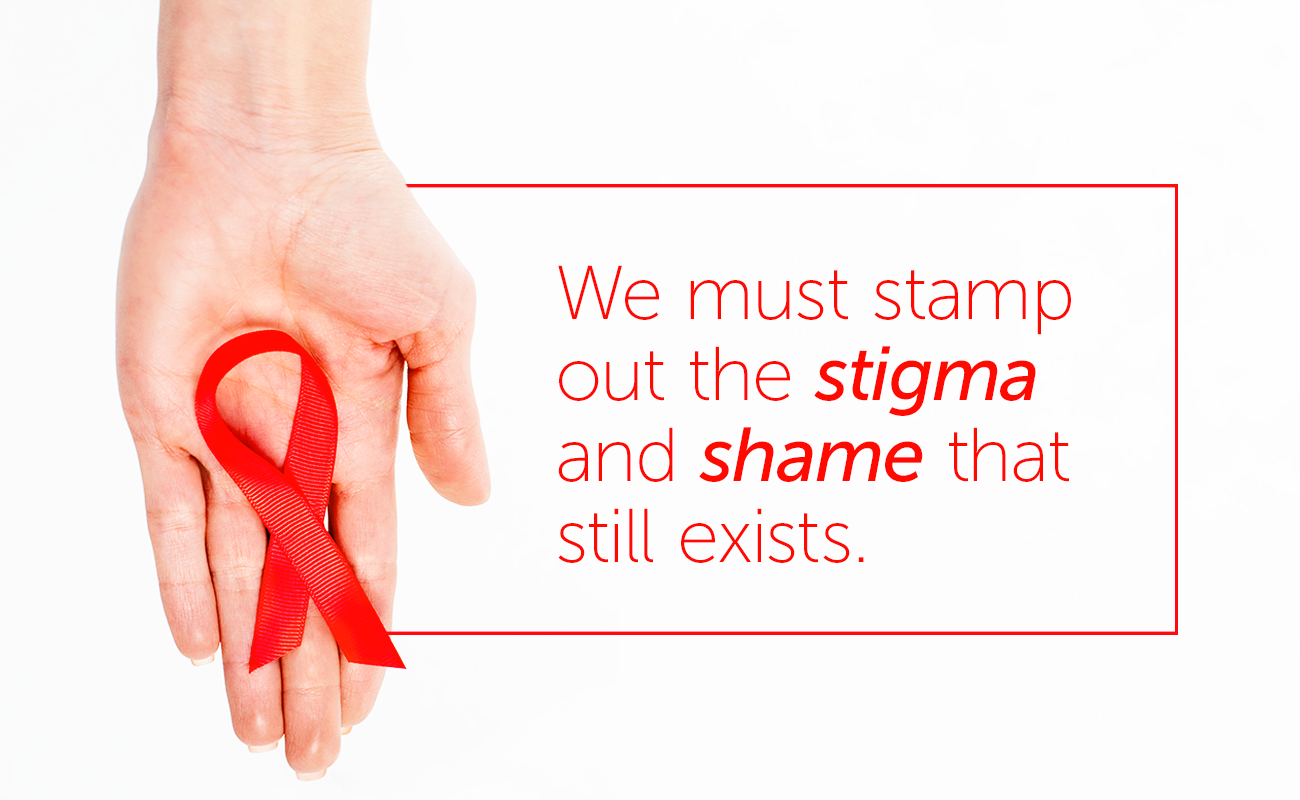A Call to Remove the Stigma around HIV AIDS

I can still recall the day, July 25, 1985, when American actor Rock Hudson announced that he was suffering from Acquired Immunodeficiency Syndrome, also known as AIDS. Although the actor’s name meant nothing to me at the time, my mother’s reaction still lingers in my memory. There was disbelief and disappointment in her voice as she yammered on to her sister about how this handsome man could have AIDS. It was summer in a rural community, and information about AIDS was scarce, so I was left to learn about this new health “monster” from my friends and the rumor mill. As teenagers, we felt practically invincible, and it was easy to pass judgment and spread misinformation about a disease that felt so removed from our own lives.
Sadly, during the early years of the AIDS epidemic, the lack of knowledge and understanding turned fear into rumors and shame. We thought it was a diagnosis with a virtual death sentence that afflicted only those in the homosexual and intravenous-drug-using communities. The stigma that was born out of fear served only to isolate those who needed care, and discouraged open conversation and proactive testing among the broader society.
However, over the years of my nursing career, I learned more about this disease and came to understand the value of open conversations with partners and physicians and of testing without judgment, as well as the importance of each person knowing their “status” and the status of those they love.
Medical knowledge has come a long way. Today, we know that HIV can be an effectively managed chronic infection, allowing an HIV-positive person to thrive and live a healthy life. But for this to be true for everyone, we must stamp out the stigma and shame that still exists. Let’s embrace conversations with our medical providers who offer routine testing for HIV; these tests should be as inclusive as all preventive health services. Knowing your status is your right and your greatest defense. Fight the stigma, and get tested today.
Who should get tested for HIV?
The Centers for Disease Control and Prevention (CDC) recommends that everyone 13 to 64 years old get tested for HIV at least once as part of routine health care. As a general rule, people at high risk for HIV infection should get tested each year.
Factors that increase the risk of HIV infection include:
- Having vaginal or anal sex with someone who is HIV positive or whose HIV status you don’t know
- Injecting drugs and sharing needles, syringes, or other drug equipment with others
- Exchanging sex for money or drugs
- Having a sexually transmitted infection (STI), such as syphilis
- Having hepatitis or tuberculosis (TB)
- Having sex with anyone who has any of the HIV risk factors listed above
Talk to your health care provider about your risk of HIV infection and how often you should get tested for HIV.
What are the types of HIV tests?
There are three types of tests used to diagnose HIV infection: antibody tests, antigen/antibody tests, and nucleic acid tests (NATs). How soon each test can detect HIV infection differs, because each test has a different window period. The window period is the time between when a person gets HIV and when a test can accurately detect HIV infection.
- Antibody tests check for HIV antibodies in blood or oral fluid. HIV antibodies are disease-fighting proteins that the body produces in response to HIV infection. Most rapid tests and home-use tests are antibody tests.
- Antigen/antibody tests can detect both HIV antibodies and HIV antigens (a part of the virus) in blood.
- NATs look for HIV in the blood.
A person’s initial HIV test usually will be either an antibody test or an antigen/antibody test.
When an HIV test is positive, a follow-up test will be conducted. Sometimes people will need to visit a health care provider to take a follow-up test. Other times the follow-up test may be performed in a lab using the same blood sample that was provided for the first test. A positive follow-up test confirms that a person has HIV.
Talk to your health care provider about your HIV risk factors and the best type of HIV test for you. CDPHP can and help you live your healthiest life with HIV and AIDS. Contact the CDPHP Care Team for more information.
 The Daily Dose
The Daily Dose
Comments are closed.